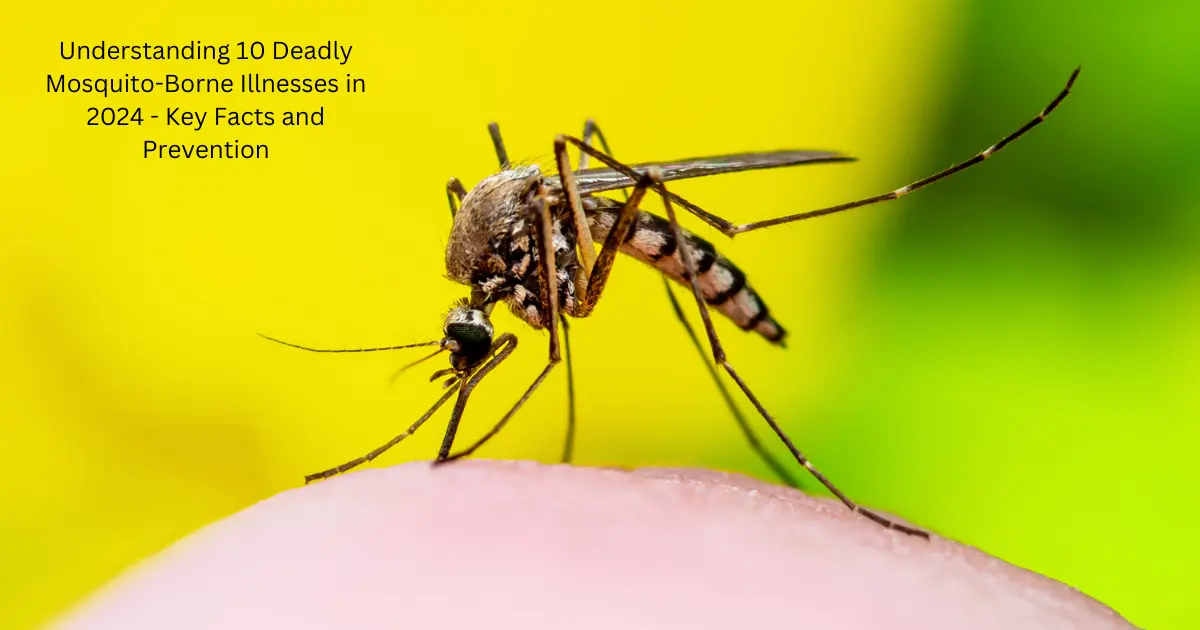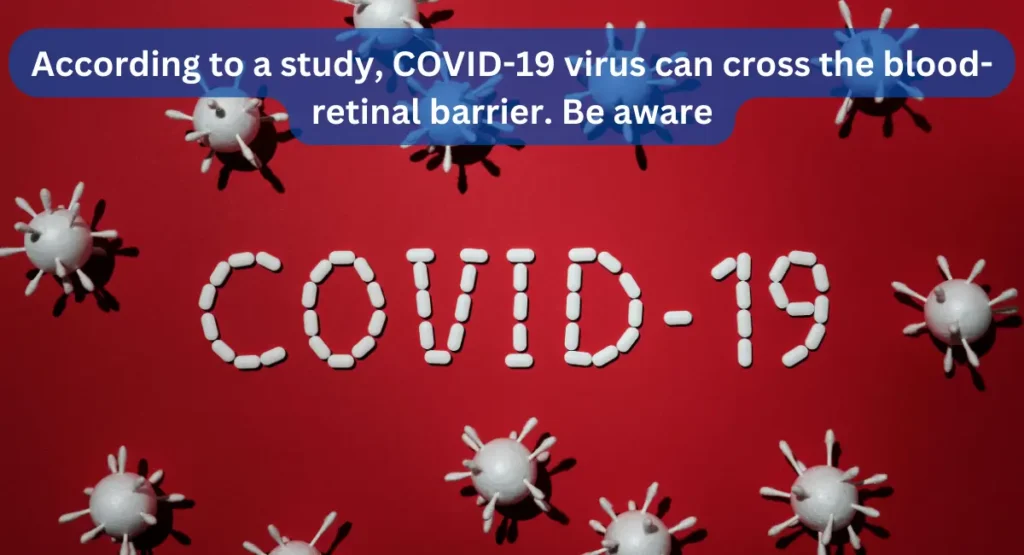Explore the 10 most dangerous mosquito-borne illnesses, including malaria, dengue fever, Zika, and West Nile virus. From symptoms to watch for and preventative measures, learn how to stay protected in 2024 against these tiny terrors and help create a world where mosquito-borne illnesses are a thing of the past
Did you know that mosquitoes are responsible for more human deaths each year than any other animal on Earth? It’s true! These tiny terrors aren’t just annoying – they’re downright deadly.
In fact, the World Health Organization estimates that vector-borne diseases, primarily transmitted by mosquitoes, cause over 700,000 deaths annually. Yikes!

Table of Contents
ToggleThe Global Impact of Mosquito-Borne Diseases
Before we jump into the specific illnesses, let’s take a moment to appreciate the sheer scale of the problem we’re facing. Mosquito-borne diseases affect millions of people worldwide, with a disproportionate impact on developing countries.
These illnesses don’t just claim lives; They also cause significant damage to economies, healthcare systems, and the overall quality of life in affected regions.
Climate change is only making matters worse. As temperatures rise and weather patterns shift, mosquitoes are expanding their territories and breeding seasons. This means that diseases once confined to tropical areas are now popping up in temperate zones. Talk about unwanted guests!
Recent outbreaks have put mosquito-borne illnesses back in the spotlight. From Zika virus making headlines a few years ago to dengue fever’s continued spread, it’s clear that these diseases are a persistent and evolving threat.
Top 10 Mosquito-Borne Illnesses to Watch Out For
- Malaria: The deadliest of them all, malaria is caused by parasites transmitted through the bite of infected Anopheles mosquitoes. It’s a global menace, with symptoms ranging from fever and chills to severe complications that can be fatal if left untreated.
- Dengue Fever: Also known as “breakbone fever” (sounds fun, right?), dengue is on the rise worldwide. It can cause severe flu-like symptoms and, in some cases, lead to a life-threatening condition called dengue hemorrhagic fever.
- Zika Virus: This one made big waves a few years back, and for good reason. While it’s often mild in adults, Zika can cause serious birth defects if a pregnant woman is infected. It’s a stealthy one too – many people don’t even know they have it!
- West Nile Virus: The silent invader of North America, West Nile virus can cause everything from mild flu-like symptoms to severe neurological issues. Most people recover, but it’s definitely not a picnic.
- Chikungunya: With a name that means “to become contorted” in the Kimakonde language, you know this one’s not pleasant. It causes severe joint pain that can last for months or even years. No thanks!
- Yellow Fever: This historical killer is making a comeback. It can cause everything from fever and nausea to liver damage and bleeding. The good news? There’s a vaccine for this one!
- Japanese Encephalitis: Don’t let the name fool you – this neurological nightmare isn’t confined to Japan. It’s a leading cause of viral brain infections in Asia and can cause severe complications.
- Lymphatic Filariasis: Also known as elephantiasis, this parasitic infection can lead to severe swelling and disfigurement of the limbs. It’s a major cause of disability in many tropical areas.
- Rift Valley Fever: This viral infection affects both humans and livestock, causing economic havoc in addition to human suffering. Severe cases can lead to eye damage, brain inflammation, and hemorrhagic fever.
- Eastern Equine Encephalitis: Though rare, this virus packs a punch. It can cause brain inflammation and has one of the highest mortality rates of any mosquito-borne disease in North America.
Recognizing the Symptoms of Mosquito-Borne Illnesses
: When to Seek Medical Help
Now, I know what you’re thinking – “Great, now I’m going to panic every time a mosquito looks at me funny!” But don’t worry, knowledge is power, remember? Here’s what to watch out for:
- Fever, often high and sudden onset
- Severe headache
- Joint and muscle pain
- Fatigue
- Nausea and vomiting
- Skin rash
Of course, these symptoms can vary depending on the specific illness. Some red flags that should send you running (not literally – conserve your energy!) to the doctor include:
- High fever that doesn’t respond to over-the-counter medications
- Severe abdominal pain
- Persistent vomiting
- Bleeding from nose, mouth, or gums
- Rapid breathing or difficulty breathing
- Changes in mental state or seizures
Remember, many of these illnesses have incubation periods, so symptoms might not appear immediately after a mosquito bite.
If you’ve been in an area known for mosquito-borne diseases and develop any suspicious symptoms, it’s better to be safe than sorry – get checked out!
Prevention Strategies: Your Mosquito Battle Plan
Alright, troops, gather ’round! Here’s our battle plan for keeping those bloodsuckers at bay:
- Personal Protection:
- Use insect repellents containing DEET, picaridin, or oil of lemon eucalyptus.
- Wear long sleeves and pants, especially during dawn and dusk when mosquitoes are most active.
- Sleep under mosquito nets in high-risk areas.
- Home Front Defense:
- Eliminate standing water around your home – mosquitoes love to breed in stagnant pools.
- Use screens on windows and doors.
- Consider using mosquito-repelling plants like citronella, marigolds, or lavender in your garden.
- Community Efforts:
- Support local mosquito control programs.
- Educate your neighbors about mosquito prevention – we’re all in this together!
- Vaccination:
- Get vaccinated against diseases like yellow fever and Japanese encephalitis if you’re traveling to high-risk areas.
Treatment Options and Global Research Efforts
Treatment for mosquito-borne illnesses varies depending on the specific disease. Many, like dengue and chikungunya, are managed with supportive care – rest, fluids, and pain relievers. Others, like malaria, have specific drug treatments.
The good news is that researchers around the world are hard at work developing new treatments and vaccines. From genetically modified mosquitoes to innovative drug therapies, science is fighting back against these tiny terrors.
Global collaborations, like the WHO’s Global Vector Control Response, are bringing together experts from various fields to tackle this problem head-on.
It’s a team effort, and every breakthrough brings us one step closer to a world where mosquito-borne illnesses are a thing of the past.
Traveling to High-Risk Areas: What You Need to Know
Planning a tropical getaway? Don’t let mosquitoes ruin your fun! Here’s your travel checklist:
- Research your destination – know what diseases are prevalent there.
- Visit a travel clinic at least 4-6 weeks before your trip for any necessary vaccinations or preventive medications.
- Pack plenty of insect repellent and protective clothing.
- Consider travel insurance that covers medical evacuation, just in case.
- Monitor your health for several weeks after returning home, and don’t hesitate to see a doctor if you develop any suspicious symptoms.
Stay safe, stay informed, and don’t let the bed bugs (or mosquitoes) bite!


